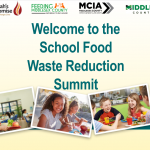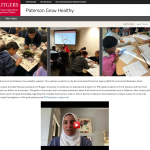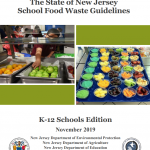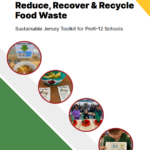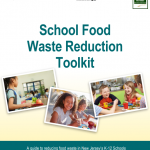Food Waste at Schools
Addressing Food Insecurity at the School Level

The U.S. Department of Agriculture estimated that over 38 million Americans, including nearly 12 million children, were living in food insecure households in 2019.[1] The issue of food insecurity is persistent although 31 percent of the available food supply goes uneaten.[2] RCE-FW is committed to addressing food insecurity through promoting the redistribution of uneaten food to those who need it. Schools present a unique opportunity to address food insecurity and the inequitable distribution of food.
The implementation of share tables in a school cafeteria can assist in addressing food insecurity. Share tables are a USDA-supported technique where a space is designated in the school cafeteria for students to place their unopened, unwanted food. This allows unwanted food to be collected and redistributed rather than getting thrown out. The food collected on the share table can be given to students who would like to take more f
ood, can be repurposed within the school for after-school activities, or can be sent home with students who have been identified as food insecure. RCE-FW offers trainings on how to set up a successful share table with the appropriate safety measures. RCE-FW also facilitates trainings on other interventions to help reduce food waste.
Composting at Schools

If redistributing unwanted food is not an option, composting should be considered. Composting is an alternative to food ending up in landfills and contributing to greenhouse gases. Composting is the process of allowing food to naturally break down into their mineral components which can be used to create nutrient-rich soils.[3] When composting is done properly, the composted material can help improve soil health and water retention, support the growth of more native plants, and decrease the need for fertilizers and pesticides.[4]
RCE-FW can help guide schools to choosing an appropriate food waste composter. Having an on-site composter at schools presents an opportunity to educate children on composting and allows the school to reduce their food waste.
Learn more about composting here.
Resources from Rutgers Cooperative Extension:
Rutgers Cooperative Extension created informative videos to educate elementary students on food systems and food waste! You can view these videos in our video library.
Are you interested in reducing food waste at your own school?
